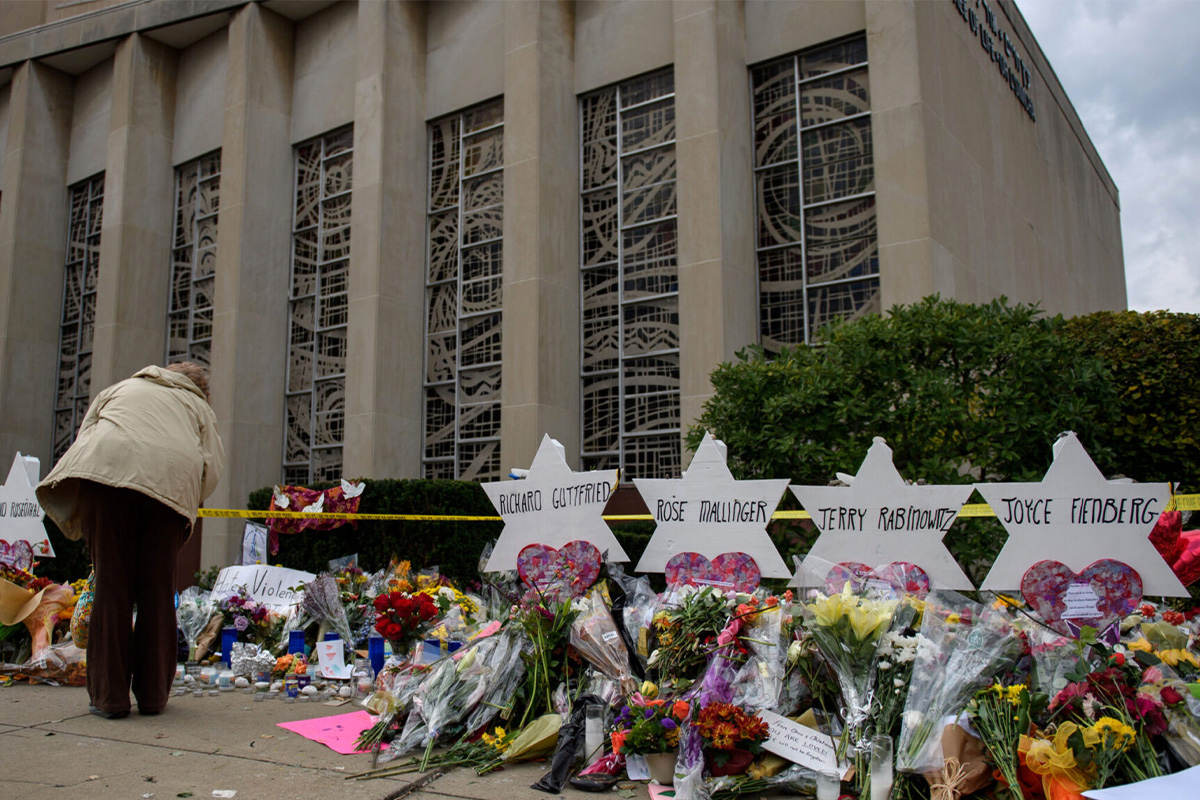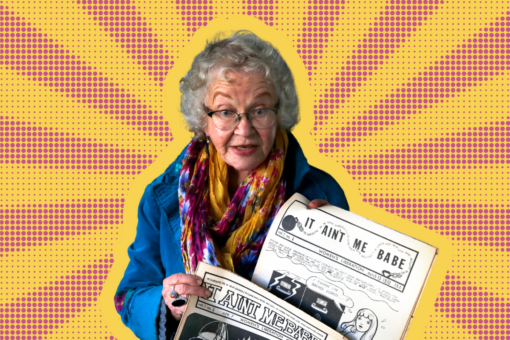A lot of my senior year of college is a blur. But not October 27, 2018.
I was awake at a shockingly decent hour for a Saturday morning. I headed to the dining hall with friends and then across campus to pick up some packages at Shipping and Receiving. Then, I walked back to my on-campus apartment to drop off the mail and grab some thesis materials before making my way to the library.
I didn’t get why people loved fall until I moved to upstate New York for college. Back in my rural Pennsylvania hometown, the dead leaves and chilly weather felt ominous. But here, at Vassar, autumn felt like an explosion of life with its fiery orange foliage, crisp air and cozy sweaters. My zig-zag path across campus wasn’t a chore, it was a delight. Everything felt as it should.
When I got back to my room, I laid my packages on the desk and took a moment to scroll Twitter for the first time that day. Immediately, my feed was inundated with news reports of a shooting at a Pennsylvania synagogue.
Please not mine.
I clicked on the first article in my feed and waited the torturous seconds for the page to load.
Where’s mom? Did she go to Torah study this morning? Please not mine.
When the article finally popped up, revealing that a gunman had murdered 11 worshippers at Tree of Life synagogue in Pittsburgh — about 240 miles away from my childhood temple — I sat on the edge of my bed, relieved and guilty. I wanted to thank God, but the words caught in my throat. I intensely felt that by the act of wishing that this hadn’t happened to me and my community, I had willed it to happen to another. I texted my family group chat to see if anyone else had heard the news and let my friends know that I wouldn’t make it to the library. I curled up in my unmade sheets.
I’ve thought about that day a lot over the last five years, but the emotional remnants of it all haven’t hit quite as hard until yesterday. Yesterday, a jury handed down a death sentence to the Pittsburgh shooter, who was found guilty of the massacre in June.
Personally, I’ve found the expanse of my reactions to be humbling. The calm rightness I felt when the shooter was found guilty has made way for a reemergence of sorrow for the victims and the Pittsburgh Jewish community — and fear for myself and Jews everywhere. I also feel overwhelmed by the varying responses the Jewish community at large has had to the use of the death penalty in this case.
Maybe you feel this way, too?
For myself, my opposition to the death penalty is rooted in both my interpretation of Jewish values and social justice. Despite how close to home this was, in my mind, pikuach nefesh, the valuing of life above all else, is incompatible with sentencing someone to die, regardless of how heinous their crime. Perhaps more simple than that, I also don’t think any state should have the right to kill anyone — there’s just too much room for error and inhumanity. I know that there are many Jews who agree with me — including Miri Rabinowitz, the widow of one of the victims, Dr. Jerry Rabinowitz (of blessed memory.)
But not everyone agrees, and I can understand why.
In fact, families of seven of the victims — Bernice and Sylvan Simon, Cecil and David Rosenthal, Rose Mallinger, Joyce Fienberg, Richard Gottfried, Daniel Stein and Melvin Wax, all of blessed memory — were in support of the death penalty. “The massacre of our loved ones was a clear violation of American law — mass murder of Jews for simply being Jewish and practicing Judaism, driven by sheer antisemitism — which the law rightfully deems is a capital offense,” they wrote in a letter to the editor of the Pittsburgh Jewish Chronicle, adding, “We are not a ruthless, uncompassionate people; we, as a persecuted people, understand when there is a time for compassion and when there is a time to stand up and say enough is enough — such violent hatred will not be tolerated on this earth.”
They concluded, “We, the undersigned, will feel further violated by letting the defendant have the easy way out. His crimes deserve the death penalty.”
The New Light congregation, one of the three housed in Tree of Life synagogue, concurred. In a statement, the congregation said that it “accepts the jury’s decision and believes that, as a society, we need to take a stand that this act requires the ultimate penalty under the law.” (However, their rabbi, Jonathan Perlman, wrote to the U.S. attorney in opposition of the death penalty in 2019.)
And, at a press conference following the verdict, survivor Audrey Glickman also stated her support for the death penalty. “Had he been sentenced to life in prison … he would have been afforded an increasing ability to communicate and play with others and the chance of working his way out of any high-security situation,” she said. “This has been a step in the right direction.”
Perhaps nowhere was the nuance of this conversation more evident than in the comments section of Hey Alma’s Instagram when we posted the news yesterday. Among the many people satisfied with the sentencing and proclaiming that it feels like justice, there were equal amounts lamenting the fact that it still won’t bring the victims back and that killing someone feels plain wrong. More still seem to be wavering somewhere in the middle — feeling generally against the death penalty but having complicated feelings when it comes to such a heinous hate crime targeting our people.
So, where does that leave us?
In the wake of the Pittsburgh sentencing, I’ve had to remind myself that as beautiful and annoying as it is, clear-cut answers are few and far between in Judaism. And even if there were more clear-cut answers, that doesn’t mean all Jews would agree with them anyway (you’ve met Jews, right?).
I think now more than ever American Jews should allow ourselves the space and empathy to feel what we feel, sit in our disagreements and our dissonance, and lean into the more certainty of caring for one another, praying for healing and following the directive of tzedek, tzedek tirdof: Justice, justice you shall pursue.



